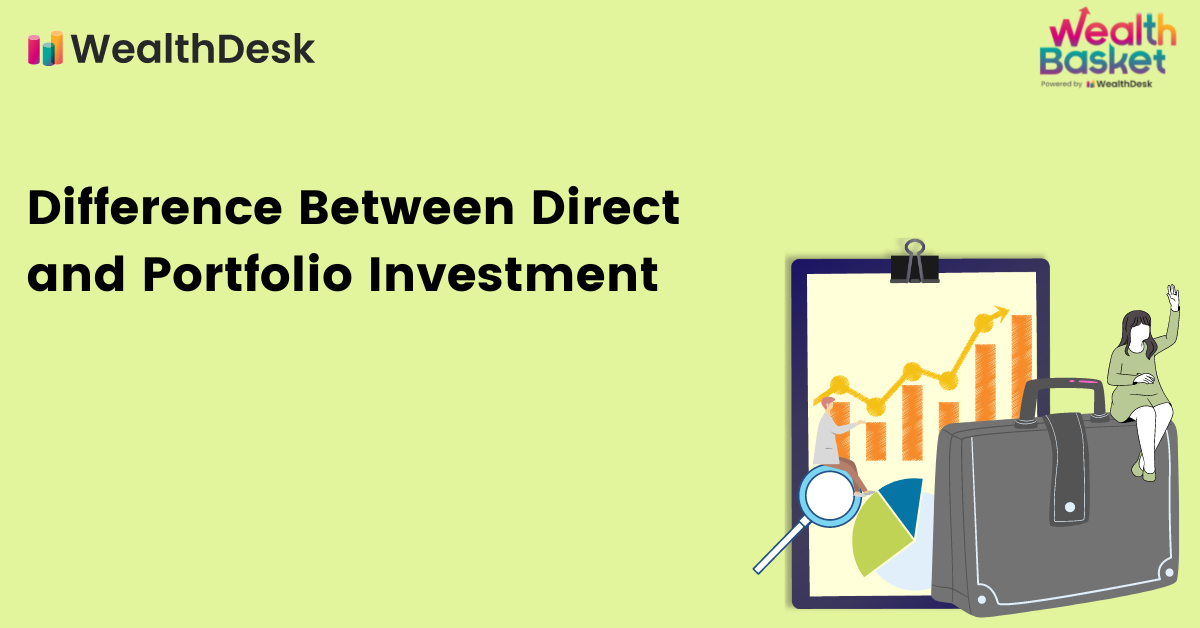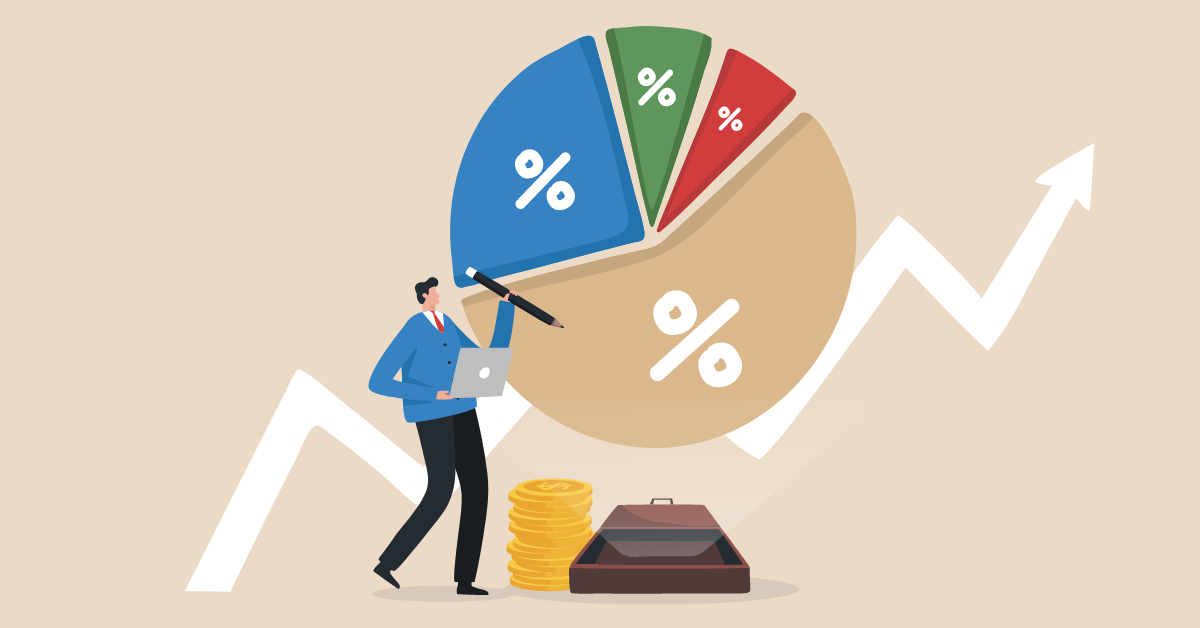- The Indian stock market experienced a massive jump of 142 lakh numbers of new individual investor accounts as the retail participation of investors increased during the Financial Year 2021.
- The equity mutual fund investments in November 2021 also surged 122% (₹ 11,614 crores from ₹ 5,214 crores in Oct 2021), making total industry assets of ₹ 37.34 trillion as of November 30, 2021.
No matter how volatile the stock market is, the investors understand the long-term value of direct equity investment and optimized portfolio investment returns. However, the question remains debatable whether to invest directly in equity shares or consider a portfolio investment through an expert professional.
Here we explain what direct investment is, its pros and cons, what portfolio investment is, its pros and cons, and the difference between direct and portfolio investment to help you make a better decision on your equity investments.
What is Direct Investment?
Direct equity investment refers to an investment by an investor directly in the stocks of a company. In the direct investment, you decide which company’s stocks you want to purchase and buy shares from your own. Hence, you control what you buy and sell in direct investment after considering market trends and your analysis.
Direct investments allow investors to buy or sell securities whenever they want while also making it challenging for them to study and analyze the markets and performance of the companies they want to invest in.
Pros and Cons of Direct Investment
You should invest directly in the equity stocks of the companies if-
- You are a stock market enthusiast and already have a comprehensive knowledge of the market.
- You know where you want to invest your money for long-term growth.
- You want to control your investment and make your decisions yourself.
- You prefer performing extensive market analysis on your own over the same being done by market experts.
You should NOT invest directly in the equity stocks of the companies if-
- You have no or little idea about the stock market and have no patience to study them on your own.
- You are not sure which companies’ stocks you should invest in and how they will perform.
- You are a risk-averse investor and want to play safer than direct equity investment.
- You prefer paying for expert analysis to spending your time on countless researches.
So, what should you do if you do not want to select direct investment? There is an option of portfolio investment that allows you to simply invest in the portfolio designed explicitly by the market experts who conduct market analysis daily.
Let’s understand what is a portfolio investment and why should you invest in the same?
What is Portfolio Investment?
Portfolio investment refers to investing your money into one or more portfolios carefully created by the industry professionals after following thought-through research of various securities. The market researchers charge some fees for curating a portfolio for you, and the rest is done by them – from creating a portfolio to timely rebalancing (exiting existing positions and entering new positions).
Managing your investment portfolio could be cumbersome sometimes as you cannot frequently check the performance. In contrast, the professionals regularly use their extensive knowledge about the market. Some of the best investment portfolios include shares of companies across the sectors to diversify the portfolio and make it less prone to risks.
Benefits and Drawbacks of Portfolio Investment
You should invest in portfolios created by the industry specialists if-
- You are too busy to carry out the stock market analysis on your own and trust the market experts’ insights.
- You are ready to pay a small fee to invest in securities portfolios to diversify your investment.
- You want to optimize your returns but do not know how to do it.
- You fear the market volatilities yet want to grow your money through equity investment.
You should NOT invest in portfolios created by the industry specialists if-
- You are not ready to pay fees for the professionals’ market research.
- You want to control where you want to invest and when you want to invest or divest.
- You are ready to take risks and want to play it your way.
Difference Between Direct and Portfolio Investment
Risks Involved
The risks involved in direct equity investments are higher than in portfolio investments. Based on extensive research, the portfolio investment diversifies the risk by investing across various sectors.
Return Optimization
The returns generated by direct investments could sometimes be too low or too high. Still, the portfolio investment generates optimized returns as they are well-diversified across sectors.
Cost of Investment
Cost of investment will be low in the direct equity investments as you invest on your own. However, the portfolio investment may cost you more as you pay fees to the market professionals to create a portfolio for you and rebalance it.
Control Over Your Investments
In direct investment, you control your investments and make your investment decisions on your own. In contrast, the industry experts take all the decisions in portfolio investment.
Wrapping Up
If you have stock market knowledge, investing your money in direct equity could work well for you. However, you may try portfolio investment when you want to optimize your returns and invest in thoroughly researched stocks.
At WealthDesk, we can help you invest your money into combinations of stocks and ETFs specifically designed by SEBI-approved experts who conduct comprehensive research about each stock and ETF to create WealthBaskets.
FAQs
Investing in shares of companies is quite risky due to volatile markets and price fluctuations. However, you may make better profits with the right strategy than the other instruments.
A portfolio consists of various securities such as stocks, bonds, FDs, ETFs, mutual funds, etc.
A well-diversified portfolio is considered a good investment where blue-chip companies and potential growth stocks exist, among other securities.


















